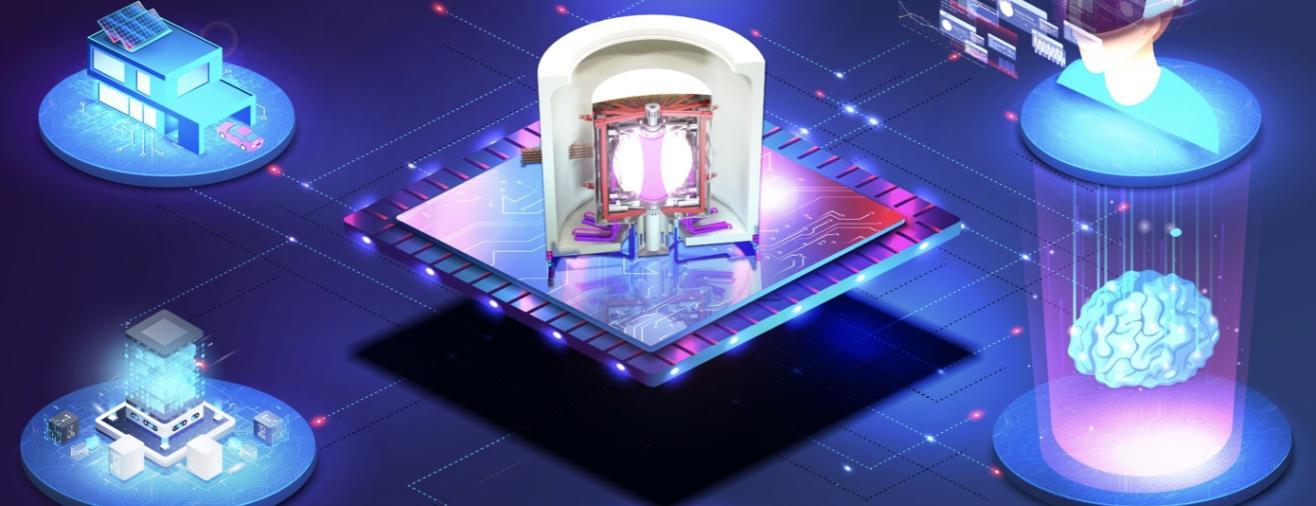A collaboration between UKAEA, Dell Technologies, Intel and the University of Cambridge will explore how supercomputers – capable of making up to one quintillion calculations per second – and AI technologies with advanced predictive capabilities, can deliver a ‘digital twin’ of the STEP design.
The engineering designs will be developed in a highly immersive and connected virtual environment, known as the ‘Industrial Metaverse’.
For the full story on this exciting announcement, including further quotes, go to https://ccfe.ukaea.uk/supercomputing-ai-and-the-industrial-metaverse-essential-for-uk-fusion-energy-powerplant-development/…
The digital twin will enable STEP’s scientists and engineers to create a robust design in the virtual world to ensure ecosystem readiness, value for money and to help STEP achieve its goal of delivering electricity to the grid in the 2040s.
Exascale computing – the next generation of computing technology – will provide powerful analytics to test STEP’s initial concepts.
Energy Security and Net Zero Secretary Grant Shapps said: “Britain has long been at the forefront of world-leading – and world-changing – scientific breakthroughs and innovations. And fusion energy is no different.
“The world needs fusion energy like never before, has the potential to provide a ‘baseload’ power, underpinning renewables like wind and solar, which is why we’re investing over £700 million to make the UK a global hub for fusion energy.
Dr Robert Akers, Head of Advanced Computing, UKAEA: “Exascale supercomputing, and the advent of the ‘AI era’ are essential and potentially transformative milestones that will help the UK to ensure STEP achieves its mission to connect fusion power to the national grid in the early 2040’s. These powerful technologies will allow us to embed robustness, flexibility, and resilience into the STEP design.
Adam Roe, HPC Technical Director, Intel: “Planning for the commercialisation of fusion power requires organisations like UKAEA to utilise extreme amounts of computational resources and artificial intelligence for simulations.”
Dr Paul Calleja, Director, Research Computing Services, University of Cambridge: “…the Cambridge Open ZettaScale Lab in partnership with Intel, Dell, UKAEA and a team of HPC experts from across UKRI have been working together for the past two years on a world leading co-design activity called “Project Dawn” to design and prototype a candidate UK exascale class converged AI & simulation GPU/CPU supercomputer, with the computation power capable of helping UKAEA meet it its vast computational requirements.”
Tariq Hussain, Head of UK Public Sales, Dell Technologies: “Working with world-class researchers at the UKAEA and Cambridge University to tackle one of the most complex engineering challenges requires world-class technology and digital infrastructure capable of meeting the most demanding workloads.”








